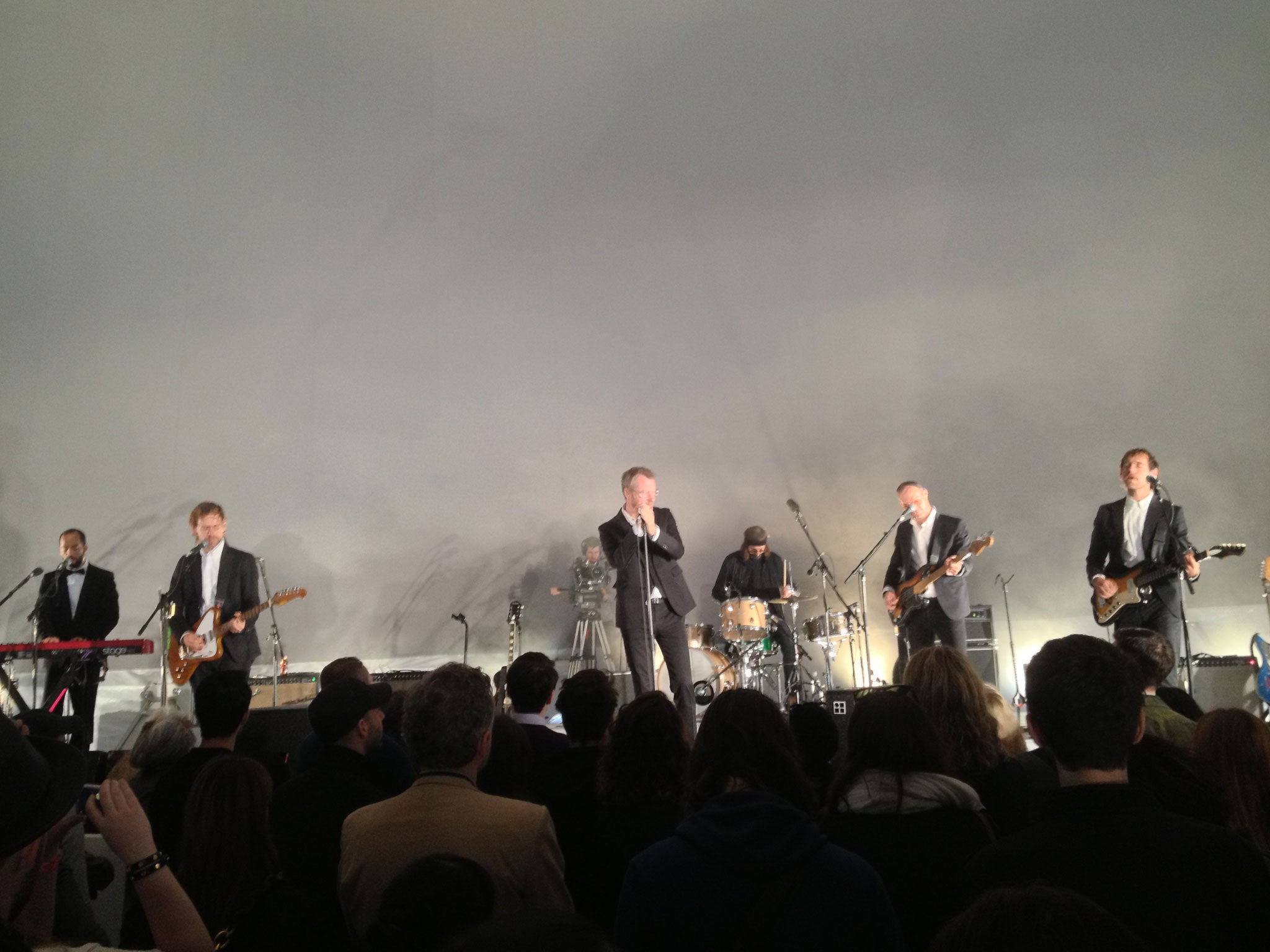Six hours. One song. No encore - The National transformed into an art installation

Your support helps us to tell the story
From reproductive rights to climate change to Big Tech, The Independent is on the ground when the story is developing. Whether it's investigating the financials of Elon Musk's pro-Trump PAC or producing our latest documentary, 'The A Word', which shines a light on the American women fighting for reproductive rights, we know how important it is to parse out the facts from the messaging.
At such a critical moment in US history, we need reporters on the ground. Your donation allows us to keep sending journalists to speak to both sides of the story.
The Independent is trusted by Americans across the entire political spectrum. And unlike many other quality news outlets, we choose not to lock Americans out of our reporting and analysis with paywalls. We believe quality journalism should be available to everyone, paid for by those who can afford it.
Your support makes all the difference.Repetition, any composer will agree, is a vital component of any chart-aspiring song.
But yesterday music-savvy denizens of New York absorbed a curious variation on the tenet. The renowned indie band The National appeared at PS1 in Queens, the offshoot of the Modern Museum of Art, to repeat a whole song, over and over again.
To be more clear, The National, in collaboration with the Icelandic installation artist Ragnar Kjartansson, spent six hours inside a small geodesic dome in the museum's courtyard singing perhaps their biggest hit, "Sorrow" non-stop, for six hours.
Each time the tune, which comes in at just under three and a half minutes, ended, they began it again. If, for the band, it was a Stakhanovite marathon, for the audience it felt like a dream on a repeating loop that won't let go.
No chairs, no stools, just bottles of water and a gently swirling cloud of dry ice that never went away – like the melancholic tones of the song itself – the group soberly persevered. A little connecting drum-patter or guitar-teasing gave them five or so seconds between each rendition.
Then leader singer, Matt Berninger, would start up the lament all over again. Was he clinging to his microphone just a little more tightly each time?
"Sorrow found me when I was young/ Sorrow waited, sorrow won/ Sorrow that put me on the pills/ It's in my honey, it's in my milk". Film-studio quality cameras poked through the mist clouds recording everything. The band, us crammed under the stage, we are all part of Mr Kjartansson's experiment. We only had to pay $15 (£10) for the privilege (and queue on the street for an hour.) The National boys had to sing "Sorrow" how many times? A hundred perhaps.
"I feel like this installation was made just for me," said Siret Darrah, 31, who had come with her two young children and her musician boyfriend Mark Wilson. She has done this before in a way. She said she loved "Sorrow" so much that she must have listened to it a thousand times through her headphones. Mr Wilson smiled at the suggestion that there was anything pretentious about the afternoon's entertainment.
"Maybe this is for only a few people... But when you repeat something as a human and not as a machine, then things are always changing. Parts of the song will be different every time and that's interesting," he said.
Jeff Geels, 26, stayed only an hour, but left impressed, even if he had not heard of The National before yesterday. "We are used to hearing different songs maybe from one album over a period of time. But I think this is about the collective impact of hearing one song over and over again".
Enjoy unlimited access to 100 million ad-free songs and podcasts with Amazon Music
Sign up now for a 4 month free trial (3 months for non-Prime members)
Enjoy unlimited access to 100 million ad-free songs and podcasts with Amazon Music
Sign up now for a 4 month free trial (3 months for non-Prime members)
Mikael Karlsson, a Swedish composer who lives in New York, said that choosing The National for this meant that an audience was guaranteed. "It brings the young people in." But he was sold, too. "I like the tranciness of it. It's like taking a drug that you know is going to do something good."
Join our commenting forum
Join thought-provoking conversations, follow other Independent readers and see their replies
Comments